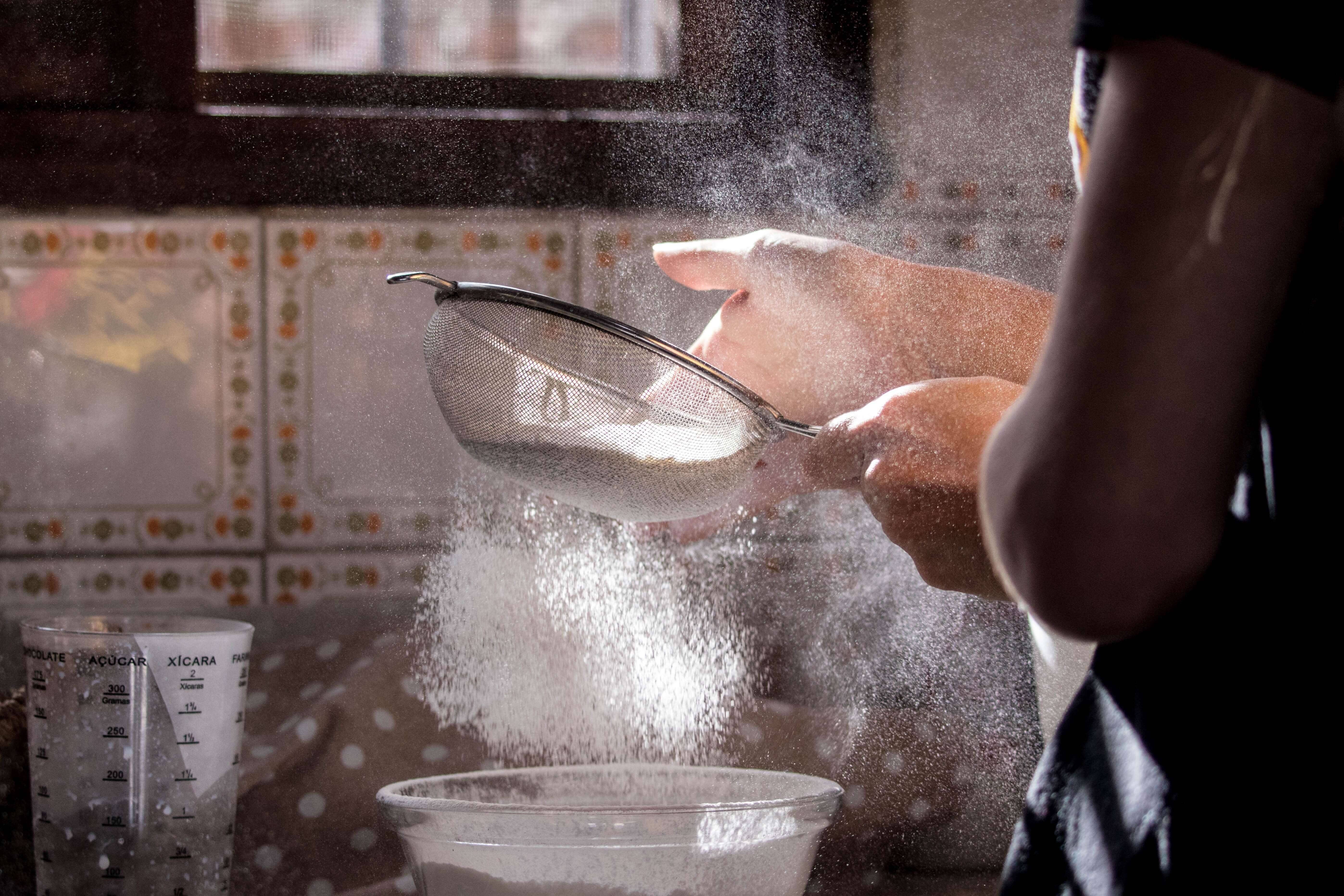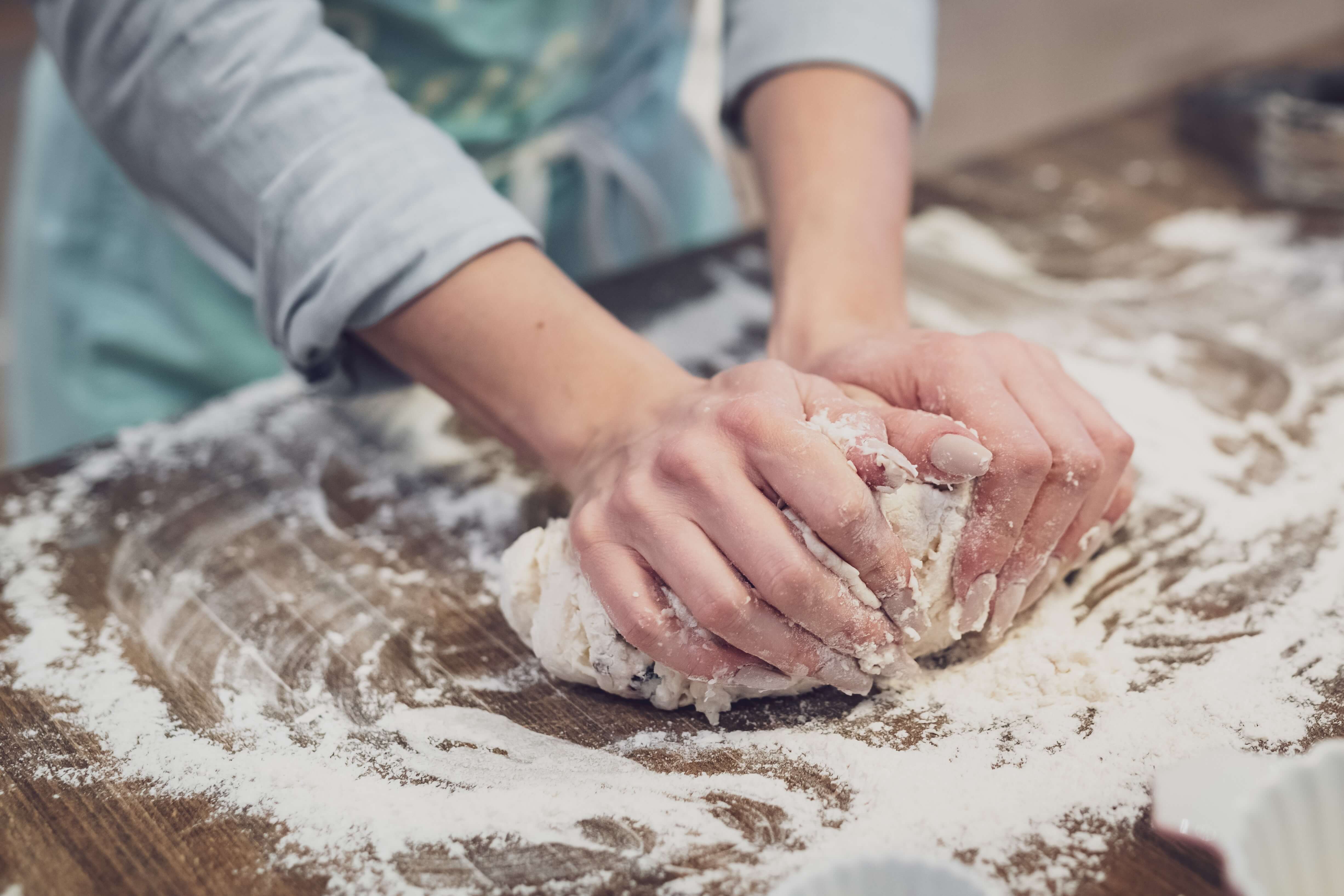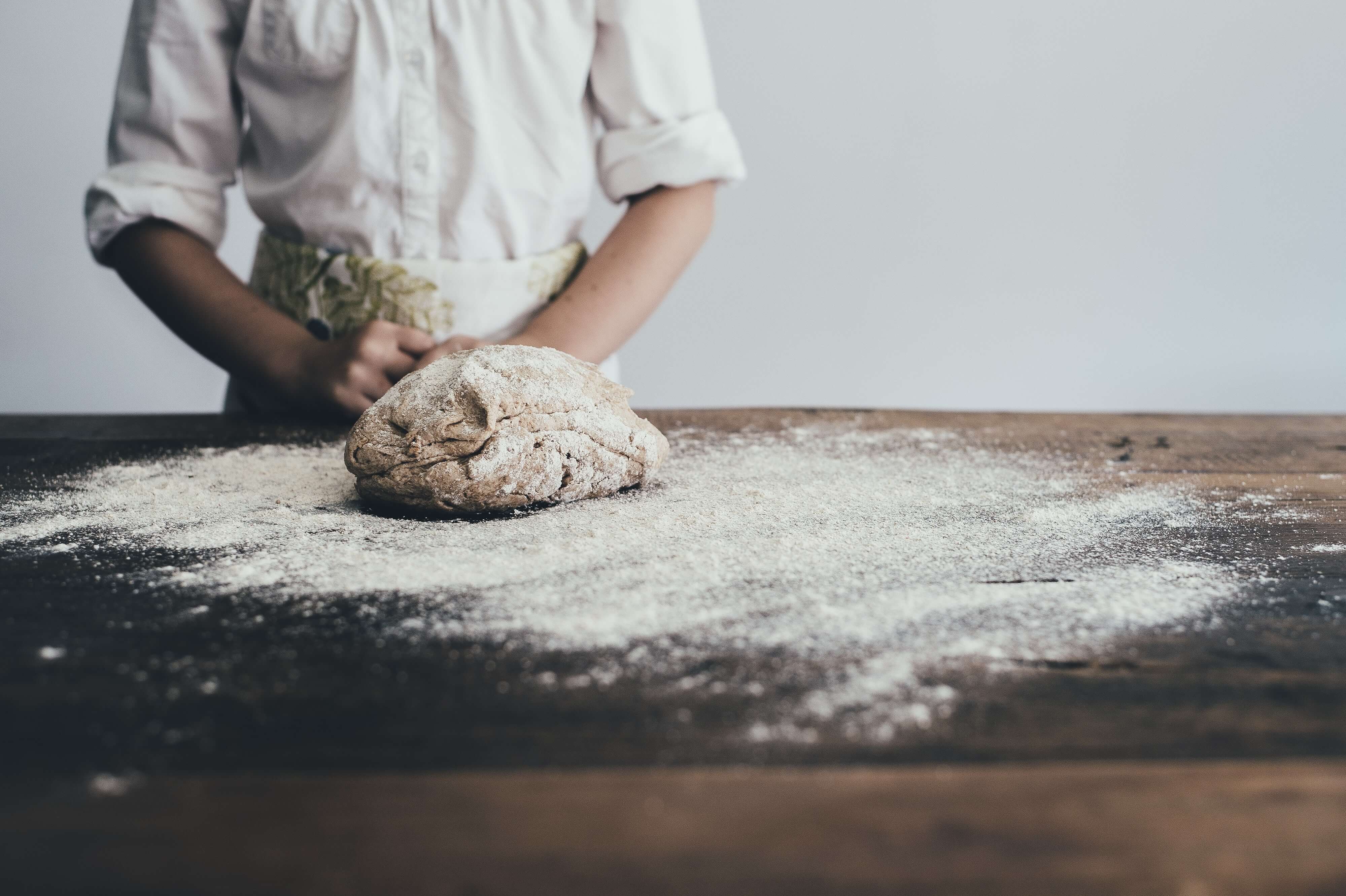Flour is an irreplaceable ingredient in many cuisines all over the world. We make bread out of it, we bake, add it to various sauces, and main courses (remember pasta!).
Of course, everyone would like to know whether such a useful product tends to spoil and how we can prevent it.
Well, let’s figure this out!
How To Store Flour. General Tips And Regulations
Flour may seem to be a very simple product to store. You buy a packet of it in the shop, bring it home, toss to the far shelf, and forget about it until the time you will need it.
But everything is not so simple!
Flour is quite a tricky stuff to keep, and knowing certain rules and tips is a must, otherwise, there is a huge risk or spoiling a foodstuff earlier than needed.
To begin with, it is important to note that the storage of refined flour (e.g. self-rising, all-purpose, pastry, and bread flours) and special flours (for instance, whole grain flour) is slightly different.
- To store refined flour at home, transfer it to the re-sealable tank after you buy the product.
- Never leave it in the original paper packet.
- Always keep refined flours protected from the moisture, bugs, and air (tanks with the firm lid will help!).
- Find a dark and cool place to keep the product in. A kitchen cabinet or a pantry will be the best option.
What about the specialty flours? Do whole-grain, quinoa, barley, nut, and other flours need another storage conditions? In fact, they do.
- For long-term storage, you’d better keep the flour refrigerated since these sorts of flour have a much shorter lifespan compared to their traditional counterparts.
- For oily flours like nut flour, remove them to the freezing camera in a frost-resistant tank. It will prevent the oils they contain from oxidizing.
- Always make sure that the storage container is dry!
And of course, check the flour for the signs of spoilage regularly in order not to miss the crucial moment when the product must be thrown away.
Even though this product is basically safe to consume and use even if it is slightly off, and old flour won’t make you badly sick, it is better to ensure that the one you are using is consumable.
How Long Does Flour Last. Flour Lifespan Depending On the Type Of Product
Respectively, the issue of the flour shelf life also matters.
Since today we have plenty of kinds of this product, it will be useful to know how long each of them can remain fresh.
That is why, to make the task simpler to you, we have prepared a small and laconic chart where you can see the duration of each flour lifespan.
[table id=9 /]
Use this chart every time you need to refresh the term of storage for the flour you are using right now!

You can even print it out and hang it on your fridge! Like that, you will always know whether your product is still consumable or, maybe, it is time to replace it with the fresh one.

How To Tell If Flour Is Bad. Major Symptoms to Note
Naturally, a question occurs about how to define the moment when flour turns bad. Indeed, it has no smell so it will be pretty hard to sense something. Maybe, there is something about its color that can help?
Let’s take a closer look!
The only thing that must be remembered about this issue is that flour can’t become seriously harmful to our health unless some insects or water got into its tank.
So how do we define the spoiled product?
- If you see big clumps inside the tank, it means that water got inside it
- Any sort of organic growth also means that the flour was exposed to water or excess humidity
- Any bugs or insects found inside the product indicate that it is off
- If the flour smells rancid, discard it without hesitation
In any of these cases, throw the flour instantly! If the bugs were spotted, clean and disinfect the cabinet and the flour tank.
Anyway, if you have any suspense regarding the flour quality, it is better to discard the product rather than taking a risk and consuming it.
And besides, bad flour will not be the same easy in cooking and baking as its fresh counterpart.
So if you notice your cake is not doing well, probably the flour is off.

How Can I Keep It Fresh?
Of course, you may wonder how you can make flour last longer.
We can advise several handy tips indeed.
- Try to use the product by its expiry date
- Don’t buy too much. Excess flour tends to spoil, that the proved fact
- Store the product in the airtight and firmly closed tank filling it to the top. The less air there is inside the better
- Find a dry and cool enough place in your home to keep flour there
- Check it for freshness regularly
- Make sure all the storage conditions are provided
- Refrigerate or freeze it if you plan to keep it longer
Such simple and obvious rules will really help you to extend the flour lifespan so that you could enjoy cookies and cakes longer!
[wp-faq-schema title=”Frequently Asked Questions”]
Flour is one of the oldest products in the world we know. It has no taste and odor but we can make delicious things out of it. Sweets, desserts, dishes – this product is indeed universal.
That is why, in order to keep it durable and consumable longer, make sure that you store your flour correctly and provide it with all the necessary conditions.
Today we have plenty of this product’s kinds. Flour made of various nuts and grains can be used for many purposes adding the new taste to the traditional dishes.
Feel free to experiment with any of those since this foodstuff has a great variety of areas where we can use it.
Take care!

Hello! I’ve found a packet of old flour these days. Does anyone know: can I use old flour?
Hi! It hangs upon how old it is. If you can, check the expiry date. If the product is stored for more than a year past this term, discard it. If no label can be found, smell it. Bad flour smells sour and similar to rubber, besides, some moths or growth can be found in it.
What flour do professional bakers use? I want to try something new but don’t know what to start with. Thanks!
The most of the bakery is made with wheat flour whereas sometimes spelt or rye flour may also be added.
Hey there! Need a hint form someone! Is it OK to use flour with weevils? Found those in mine and how I’m not sure what to do. Thank you.
Hello! Flour weevils are relatively safe to consume if the product doesn’t smell bad and there are no other signs of nasty spoilage. Try to heat the flour on the pan before use. That may help.
How do you store flour for years? Is it possible at all?
Flour can’t be called a durable product. However, if you freeze it, it can stay edible for two years at least.
Can I use expired flour for baking? It smells ok and has no moths inside, it just has few clumps.
Hey!
If you see clumps, the flour must be discarded since it is spoiled already.
Sorry.
Hello everyone! How do you preserve flour for a long time, can someone tell me? I have like two kilos left and it’s still fine. Don’t want to discard it!
Hi!
I’d recommend you to freeze it. Seriously! Just remove the product to the frost-resistant packet and toss to the freezer.
I do it all the time!
Does flour go bad in the fridge? I heard refrigeration can slow down the spoilage process. Is that true?
Well, yes, actually it’s true. I tried to refrigerate and even freeze it a couple of times when I bought way too much! And it worked!
Hi everyone! I have a question that might seem weird to most of you, but here it is: does flour go bad or expire? I mean, it’s quite durable stuff so does it have an expiration term at all?
Of course it does! Flour usually lasts around eight months if you store it tightly sealed and according to the storage rules. If kept longer, it will start degrading and even mold may develop.
Does flour go bad in a sealed container? I used to keep it in the package it’s sold but then I noticed tiny moths appearing around it so now I’m thinking of transferring flour into something else, e.g. a can or a glass jar…Do you think it will help?
Hi! Flour will go bad anyway since it has an expiry date. Normally, if stored right, it can stay ok for 6 to 8 months easily. But afterward, the product will start degrading whether you want it or not.
I have a problem and I do hope someone will be able to help me out. See, we will be living in quite a hot climate this summer, so I’m afraid I will always have trouble with storing flour. Does flour go bad in hot weather? Can anyone tell me for sure? Thanks!
It does, and it spoils even faster than when stored in a cool climate. You could try to refrigerate it, by the way, or even freeze. It may help since cold will slow down the process of decay.
I decided to try out some unusual types of flour recently and I’m thinking of using walnut flour. But I have a question regarding its storage. Does walnut flour go bad?
Yes, it does expire. Usually, if you store it right, such flour will be fine for a few months past the best-by date. But then it will start degrading slowly anyway. That’s why I’d not recommend you buy a large packet of it since you will hardly use it all!
I heard that exposing flour to cold or frost delays its spoilage. Does it mean that flour won’t go bad if you freeze it?
Well, I’d not say it won’t go bad at all. See, cold or frost will indeed slow down the spoilage as you said. However, it won’t save the product from expiring.